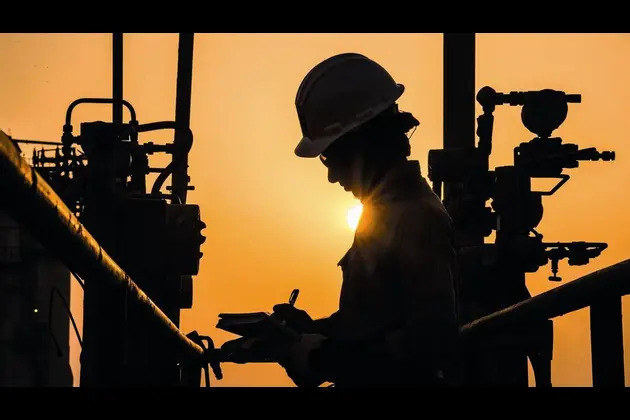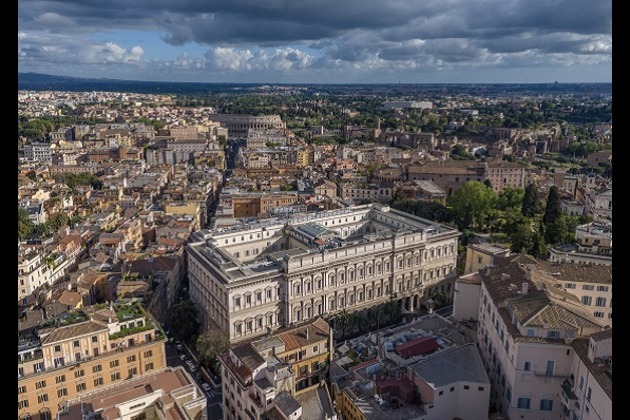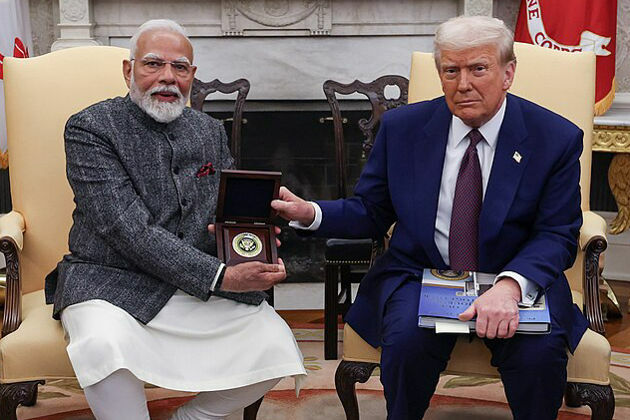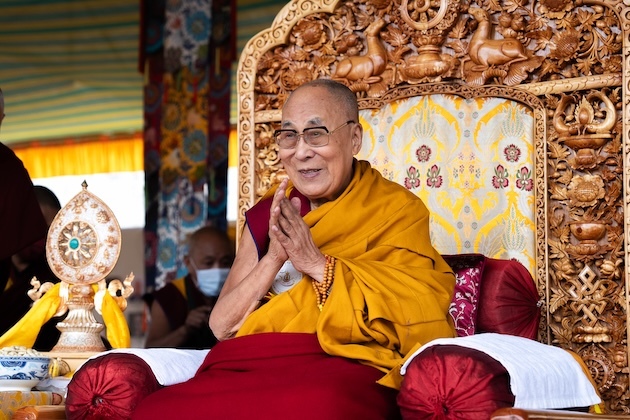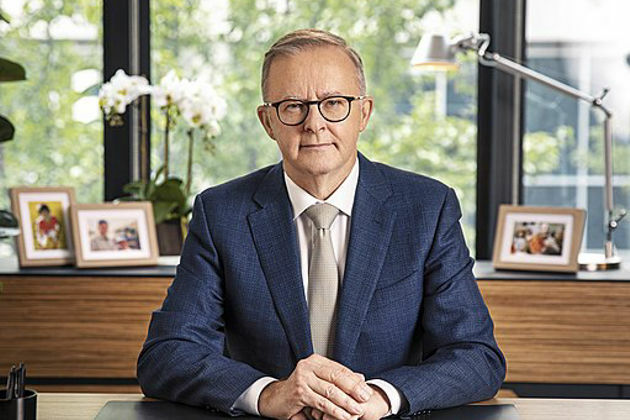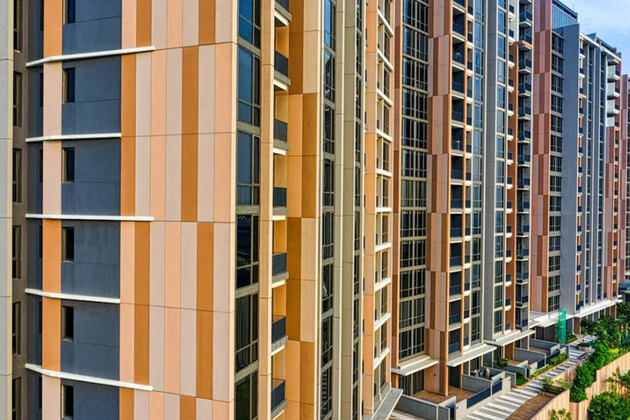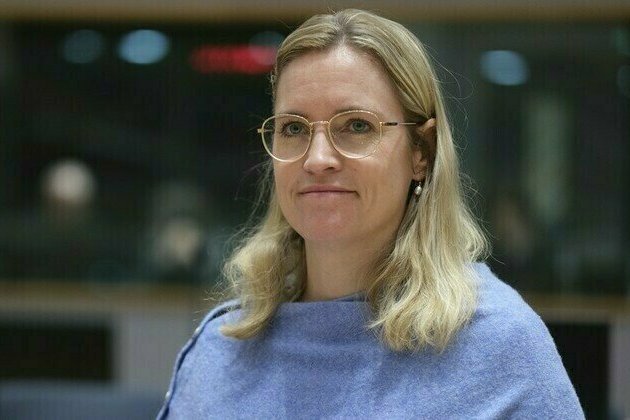World Insights: Brazil, "Land of the Future"
Xinhua
07 Jul 2025, 14:15 GMT+10
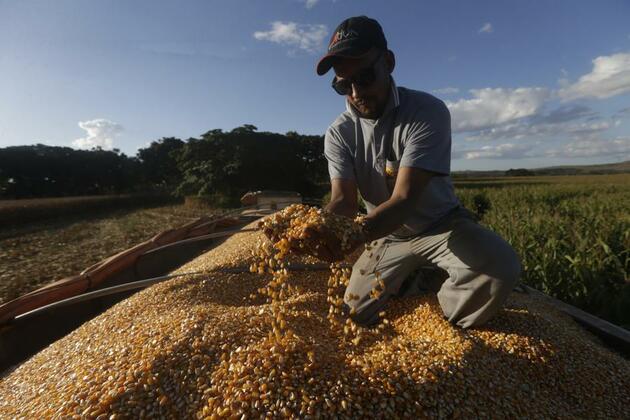
In its ascent to modernization and a sustainable future, Brazil, alongside many other developing countries, has confronted challenges and survived transformations.
RIO DE JANEIRO, July 7 (Xinhua) -- To Brazil, the "Land of the Future" has meant more than a tribute by Austrian writer Stefan Zweig who took refuge in the South American country from war in the 1940s. The title has become a dream that inspires generations of Brazilians to strive for its realization.
In its ascent to modernization and a sustainable future, Brazil, alongside many other developing countries, has confronted challenges and survived transformations. A heavyweight in the Global South, the country hosts the 17th BRICS summit running from Sunday to Monday, drawing global attention once again.
WORLD'S GRANARY
In the childhood memories of President Luiz Inacio Lula da Silva, who was born into a poor family in 1945, his mother sometimes had no food to give her children. He recalls tasting bread for the first time only at age seven. Lula's experience in part illustrated the famine facing rural Brazil until the mid-20th century.
Dr. Mariangela Hungria had devoted decades to fighting hunger in Brazil -- long before her groundbreaking research in seed and soil microbiology earned her the 2025 World Food Prize. Her pioneering work revolutionized the country's agriculture, turning scientific innovation into tangible hope for food security.
Brazil has the fifth-largest land area in the world, endowed with vast fertile farmland and pasture, with over 270 million acres of arable land and an additional untapped 150 million acres.
However, for centuries, profit-driven European colonizers prioritized export-oriented cash crops over staple food, eventually leading to the country's dependence on food imports.
In 1973, sharp fluctuations in global grain prices triggered by the oil crisis prompted the Brazilian government to break its dependence on imported food and overhaul its agricultural system.
Founded that same year, the Brazilian Agricultural Research Corporation (Embrapa) became the launchpad for scientists like Hungria to translate laboratory breakthroughs into field applications. Her team's biological inoculants now cover over 40 million hectares of Brazilian farmland -- saving farmers 25 billion dollars annually in fertilizer costs while boosting sustainable production.
Technological innovation has been the driving force behind Brazil's agricultural modernization. Complementing these advances, the government implemented structural reforms -- breaking up land monopolies, accelerating mechanization, and establishing robust rural credit systems -- while steadily upgrading infrastructure to support modernization.
The sector has seen fruitful results. From 2000 to 2020, the value of Brazil's agriculture grew 8 percent per year on average. Brazil has become the world's leading producer of agricultural commodities such as soybeans, beef and chicken. The country has become basically self-sufficient in staple foods and protein sources.
A UN report has shown that the number of Brazilians affected by severe food insecurity in 2023 dropped to 2.5 million, accounting for 1.2 percent of the population.
Yet Brazil's dual challenges persist: while agricultural modernization has reduced hunger, it continues at an environmental cost. The ongoing farmland expansion into sensitive ecosystems -- particularly rainforest regions -- has accelerated biodiversity loss. Meanwhile, the sector now faces a pivotal transition toward sustainable intensification, requiring balanced solutions for both food security and ecological preservation. Hungria said, "The fundamental solution still lies in improving the soil."
AMBITION IN AVIATION
At the center of Brazil's highlands stands Brasilia -- a capital shaped like a jet aircraft, its wings outstretched in concrete and glass. Designed by Oscar Niemeyer over 60 years ago, this modernist marvel embodied Brazil's soaring ambitions. The city's aerodynamic form proved prophetic, mirroring the country's later ascent as an aviation powerhouse.
Today, Brazil dominates the market for midsize commercial aircraft as the world's leading producer of jets under 150 seats. Embraer, established in 1969, now ranks as the world's third-largest commercial plane manufacturer after aviation giants Boeing and Airbus, with over 9,000 aircraft delivered to global operators.
Brazil's pioneering aviation investments were born of necessity as much as ambition, explains Fernando Grau, Embraer's Market and Product Research Director. The country's vast expanses and challenging terrain made air transport essential for national integration, while imported aircraft frequently faltered in tropical conditions -- creating the perfect conditions for domestic aerospace innovation.
In 1950, Brazil established the Aeronautics Institute of Technology to train aviation talent. Two decades later, Embraer began rolling out domestically designed aircraft, quickly gaining traction in global markets.
The industry hit turbulence in the 1990s, with Embraer nearly going bankrupt before a government-led privatization helped reposition the company. Strategic partnerships and a focus on regional and business jets fueled its recovery.
Collaboration with fellow Global South countries, especially China, has proven vital. A joint venture in the northeastern Chinese city of Harbin began in 2003, and the aviation industry remains a major pillar of China-Brazil cooperation.
"China and Brazil have built what's considered a model of South-South cooperation in high-tech industries," said Patrick Peng, president of Embraer China. "We are confident that our partnership with China and other Global South countries will continue to generate mutual benefits and open new development opportunities."
Despite fierce competition from Western giants, Embraer has carved out a competitive edge. The aircraft maker's success comes from controlling critical stages of the value chain from aircraft design, system integration to manufacturing and sales, said Marcos Ferreira, a professor at the State University of Campinas.
GREEN TRANSITION
Straddling the border between Brazil and Paraguay, the monumental Itaipu Dam harnesses the roaring power of the Parana River. As one of Earth's most formidable hydroelectric projects, this engineering colossus transforms the waterway's relentless flow into a sustainable energy lifeline for both countries.
Since its inaugural turbine started operation in 1984, Itaipu has consistently produced some 80 terawatt-hours of electricity annually, meeting roughly 10 percent of Brazil's total power demand.
Navigating the tension between economic development and ecological preservation remains a defining challenge for emerging economies. Brazil has joined the vanguard of countries pursuing a green growth model, one that aligns industrial advancement with environmental stewardship.
For decades, Brazil has been accelerating its energy transition, not least by developing hydropower, along with other renewables like wind and solar energy. According to the Brazilian Energy Research Office, renewables now account for nearly half of the country's energy mix.
In recent years, China's investment and technology have injected fresh momentum into Brazil's green development. Earlier this year, the Mauriti Photovoltaic Project, invested and built by the Chinese firm PowerChina, has achieved full-capacity grid connection, expected to cut some 8.2 million tons of carbon dioxide emissions annually.
Last August, Chinese and Brazilian companies signed an agreement to jointly develop a 1 megawatt green hydrogen plant. Once completed, it will produce up to 200 standard cubic meters of green hydrogen per hour.
Meanwhile, the Brazil-China joint venture for the Belo Monte ultra-high-voltage direct current transmission project prioritizes ecological protection along its route, restoring some 200 hectares of forest cover.
To curb the unchecked expansion of economic development that had rapidly depleted the Amazon rainforest, Lula signed a series of decrees upon his return to office in 2023, including renewed measures to combat deforestation and the re-establishment of the Amazon Fund. As a result, deforestation in the Amazon fell by 50 percent year-on-year in 2023 alone.
"A standing tree is worth more than tons of wood illegally extracted by those who think only of easy profit, at the expense of the deterioration of life on Earth," Lula said in his victory speech as re-elected president. "A river of clean water is worth much more than all the gold extracted at the expense of mercury that kills animals and puts human life at risk."
Launching the Great Seal Program in 2024, the Lula administration established social and environmental sustainability standards across multiple industries, certifying products and services that align with regulations. It also introduced "green stocks" to encourage companies to boost environmental investments and steer capital towards green industries.
Meanwhile, the administration also unveiled the Green Mobility and Innovation Program to promote emission cuts and decarbonization in the automotive sector.
As the 30th UN Climate Change Conference will be held in Belem, Brazil, in November, the country's Environment and Climate Change Minister Marina Silva said Brazil is committed to strengthening solidarity and cooperation with Global South countries to play a larger role in multilateral climate efforts.
STRENGTHENING GLOBAL SOUTH COOPERATION
At the beginning of this century, Guaribas, a city in Brazil's northern Piaui state, was known as the "city of hunger" due to its isolation and underdevelopment. More than two decades later, this small inland city has undergone a remarkable transformation, with significant progress in water and electricity supply networks, affordable housing as well as education and healthcare services.
Eraques Alves, 33, has witnessed the metamorphosis of Guaribas firsthand. "When I was eight or nine, farming was our only source of income. As a child, I had to go to the fields with my parents," he said.
Thanks to government support, his life trajectory transformed entirely. He has founded a company that provides IT services to the city, reinvesting in the community where he grew up.
He attributes the changes to social programs, such as "Zero Hunger" (Fome Zero) and "Family Allowance" (Bolsa Familia), introduced in 2003 in Brazil. Guaribas was selected as the launch site for the "Zero Hunger" initiative, which has led to major improvements in water supply, sanitation and roads. Alves' mother was also among the first beneficiaries of the "Family Allowance" program.
Through its path of self-reliant development, Brazil has engineered economic expansion by modernizing agriculture and industry, championed sustainable growth through ecological initiatives, and elevated people's living standards while combating poverty and inequality via targeted social programs.
Official data shows that from 2003 to 2011, around 20 million people in Brazil were lifted out of poverty.
Lula said that his country is committed to forging a "Brazilian path to modernization," one that integrates economic growth, poverty and inequality reduction, and the sustainable use of natural resources.
From Brazil's perspective, countries of the Global South share common challenges in eradicating hunger, poverty, and inequality, and therefore need greater solidarity, cooperation, and collective self-strengthening. In 2024, as the rotating presidency of the G20, Brazil launched the Global Alliance Against Hunger and Poverty to help countries coordinate responses, develop policies, and mobilize funding to address these pressing issues.
The collective rise of the Global South is a defining feature of the profound changes reshaping the world. The shared journey of Global South countries toward modernization marks a significant chapter in world history. In this historic process, Brazil is leaving its distinct mark and contributing its wisdom and strength.
As the host of the 17th BRICS Summit, Brazil anchored the gathering with its chosen theme -- "Strengthening Global South Cooperation for More Inclusive and Sustainable Governance." According to Brazilian Minister of Science, Technology and Innovation Luciana Santos, Brazil hopes to work hand in hand with other Global South countries to build a more multipolar world founded on the principle of peaceful coexistence.
Such close cooperation represents the practice of building a community with a shared future for mankind and vividly exemplifies the mutual support and common development among Global South countries, Santos said.
 Share
Share
 Tweet
Tweet
 Share
Share
 Flip
Flip
 Email
Email
Watch latest videos
Subscribe and Follow
Get a daily dose of China National News news through our daily email, its complimentary and keeps you fully up to date with world and business news as well.
News RELEASES
Publish news of your business, community or sports group, personnel appointments, major event and more by submitting a news release to China National News.
More InformationBusiness
SectionSaudi Aramco plans asset sales to raise billions, say sources
DUBAI, U.A.E.: Saudi Aramco is exploring asset sales as part of a broader push to unlock capital, with gas-fired power plants among...
Russia among 4 systemic risk countries for Italian banks
MILAN, Italy: Italian regulators have flagged four non-EU countries—including Russia—as carrying systemic financial risk for domestic...
US debt limit raised, but spending bill fuels fiscal concerns
NEW YORK CITY, New York: With just weeks to spare before a potential government default, U.S. lawmakers passed a sweeping tax and spending...
Shein hit with 40 million euro fine in France over deceptive discounts
PARIS, France: Fast-fashion giant Shein has been fined 40 million euros by France's antitrust authority over deceptive discount practices...
Meta hires SSI CEO Gross as AI race intensifies among tech giants
PALO ALTO/TEL AVIV: The battle for top AI talent has claimed another high-profile casualty—this time at Safe Superintelligence (SSI),...
Engine defect prompts Nissan to recall over 443,000 vehicles
FRANKLIN, Tennessee: Hundreds of thousands of Nissan and Infiniti vehicles are being recalled across the United States due to a potential...
Asia Pacific
SectionTrump signals progress on India Trade, criticizes Japan stance
WASHINGTON, D.C.: President Donald Trump says the United States could soon reach a trade deal with India. He believes this deal would...
Dalai Lama to address Buddhist conference, reveal succession plan
DHARAMSHALA, India: The Dalai Lama is set to address a significant three-day conference of Buddhist leaders this week, coinciding with...
Australian PM rejects US pressure to ease biosecurity rules
SYDNEY, Australia: Australia will not ease its strict biosecurity rules during trade talks with the United States, Prime Minister Anthony...
World Insights: Brazil, "Land of the Future"
In its ascent to modernization and a sustainable future, Brazil, alongside many other developing countries, has confronted challenges...
Institutional Investment in India's real state up 122% in Q2 2025 (QoQ): Vestian Report
New Delhi [India] July 7 (ANI): The Indian real estate sector received institutional investments of USD 1.80 billion in Q2 2025, an...
NATO state issues warning over ramping up defense spending
Western nations risk financial unsustainability when implementing their militarization plans, the Danish economy minister says EU...

